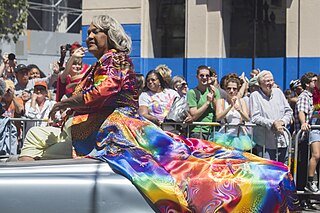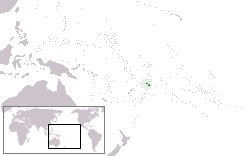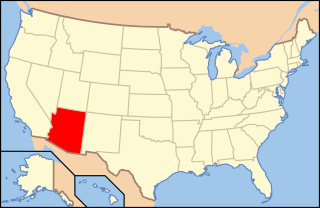History
In 1963, the modern day civil rights movement manifested in San Francisco through demonstrations against hotels, supermarkets, drive-in restaurants, automobile showrooms and automobile repair shops which were discriminating against African Americans. In early 1964, Mayor John Shelley appointed an Interim Committee on Human Relations, which subsequently recommended to the San Francisco Board of Supervisors that a permanent Human Rights Commission be established. In July 1964, the Board of Supervisors passed the recommendation, and Mayor Shelley signed an ordinance establishing the Human Rights Commission.
From 1964, the Human Rights Commission grew in response to City government's mandate to address the causes of and problems resulting from prejudice, intolerance, bigotry and discrimination. The Mayor and the Board of Supervisors gave the Human Rights Commission more and broader powers and duties to address these problems, and passed additional ordinances, which were implemented by the Human Rights Commission. In June 1990, the voters of San Francisco established the Human Rights Commission as a Charter Commission (see Section 3.699-5 of the Charter).

The Human Rights Campaign (HRC) is an American LGBTQ advocacy group. It is the largest LGBTQ political lobbying organization within the United States. Based in Washington, D.C., the organization focuses on protecting and expanding rights for LGBTQ individuals, including advocating for same-sex marriage, anti-discrimination and hate crimes legislation, and HIV/AIDS advocacy. The organization has a number of legislative initiatives as well as supporting resources for LGBTQ individuals.
GenderPAC was an LGBT rights organization based in Washington, DC working to ensure that classrooms, communities, and workplaces were safe places for every person to learn, grow, and succeed, whether or not they conform to expectations for masculinity or femininity. It was active from 1995 to 2009.

Matt Foreman is an American lesbian, gay, bisexual and transgender (LGBT) rights lawyer and activist with a background in political advocacy and civil rights work. He is the program director at the Haas Jr. Fund, overseeing its work in the areas of gay and lesbian and immigrant rights.

The San Francisco Lesbian, Gay, Bisexual, and Transgender Pride Celebration, usually known as San Francisco Pride, is a pride parade and festival held at the end of June most years in San Francisco, California, to celebrate the lesbian, gay, bisexual, and transgender (LGBT) people and their straight allies.
Bay Area Sex Worker Advocacy Network (BAYSWAN) is a non-profit organization in the San Francisco Bay Area which works to improve working conditions, increase benefits, and eliminate discrimination on behalf of individuals working within both legal and criminalized adult entertainment industries. The organization provides advice and information to social service, policy reformers, media outlets, politicians, including the San Francisco Task Force on Prostitution and Commission on the Status of Women (COSW), and law enforcement agencies dealing with sex workers.

Lesbian, gay, bisexual, transgender, intersex, non-binary and otherwise queer, non-cisgender, non-heterosexual citizens of El Salvador face considerable legal and social challenges not experienced by fellow heterosexual, cisgender Salvadorans. While same-sex sexual activity between all genders is legal in the country, same-sex marriage is not recognized; thus, same-sex couples—and households headed by same-sex couples—are not eligible for the same legal benefits provided to heterosexual married couples.

LGBT movements in the United States comprise an interwoven history of lesbian, gay, bisexual, transgender and allied social movements in the United States of America, beginning in the early 20th century. A commonly stated goal among these movements is social equality for LGBT people. Some have also focused on building LGBT communities or worked towards liberation for the broader society from biphobia, homophobia, and transphobia. LGBT movements organized today are made up of a wide range of political activism and cultural activity, including lobbying, street marches, social groups, media, art, and research. Sociologist Mary Bernstein writes: "For the lesbian and gay movement, then, cultural goals include challenging dominant constructions of masculinity and femininity, homophobia, and the primacy of the gendered heterosexual nuclear family (heteronormativity). Political goals include changing laws and policies in order to gain new rights, benefits, and protections from harm." Bernstein emphasizes that activists seek both types of goals in both the civil and political spheres.
Henry "Hank" Wilson was a longtime San Francisco LGBT rights activist and long term AIDS activist and survivor. The Bay Area Reporter noted that "over more than 30 years, he played a pivotal role in San Francisco's LGBT history." He grew up in Sacramento, and graduated with a B.A. in education from the University of Wisconsin–Madison in 1971.
The history of LGBT residents in California, which includes centuries prior to the 20th, has become increasingly visible recently with the successes of the LGBT rights movement. In spite of the strong development of early LGBT villages in the state, pro-LGBT activists in California have campaigned against nearly 170 years of especially harsh prosecutions and punishments toward gays, lesbians, bisexuals, and transgender people.

Lesbian, gay, bisexual, and transgender (LGBT) people in the U.S. state of Georgia enjoy most of the same rights and liberties as non-LGBT people. LGBT rights in the state have been a recent occurrence, with most improvements occurring from the 2010s onward. Same-sex sexual activity has been legal since 1998, although the state legislature has not repealed its sodomy law. Same-sex marriage has been legal in the state since 2015, in accordance with Obergefell v. Hodges. In addition, the state's largest city Atlanta, has a vibrant LGBT community and holds the biggest Pride parade in the Southeast. The state's hate crime laws, effective since June 26, 2020, explicitly include sexual orientation.

Lesbian, gay, bisexual, and transgender (LGBT) people in Samoa face legal challenges not faced by non-LGBT residents. Sexual contact between men is illegal; punishable by up to seven years imprisonment, but the law is not enforced.

Lesbian, gay, bisexual, and transgender (LGBT) people in the U.S. state of Arizona may face legal challenges not experienced by non-LGBT residents. Same-sex sexual activity is legal in Arizona, and same-sex couples are able to marry and adopt. Nevertheless, the state provides only limited protections against discrimination on the basis of sexual orientation and gender identity. Several cities, including Phoenix and Tucson, have enacted ordinances to protect LGBT people from unfair discrimination in employment, housing and public accommodations.

Lesbian, gay, bisexual, and transgender (LGBT) persons in the U.S. state of Alaska may face some legal challenges not experienced by non-LGBT Alaskans. Since 1980, same-sex sexual conduct has been allowed, and same-sex couples can marry since October 2014. The state offers few legal protections against discrimination on the basis of sexual orientation and gender identity, leaving LGBT people vulnerable to discrimination in housing and public accommodations; however, the U.S. Supreme Court's ruling in Bostock v. Clayton County established that employment discrimination against LGBT people is illegal under federal law. In addition, four Alaskan cities, Anchorage, Juneau, Sitka and Ketchikan, representing about 46% of the state population, have passed discrimination protections for housing and public accommodations.

The first English-language use of the word "bisexual" to refer to sexual orientation occurred in 1892.
Transgender inequality is the unequal protection received by transgender people in work, school, and society in general. Transgender people regularly face transphobic harassment. Ultimately, one of the largest reasons that transgender people face inequality is due to a lack of public understanding of transgender people.

Cecilia Chung is a civil rights leader and activist for LGBT rights, HIV/AIDS awareness, health advocacy, and social justice. She is a trans woman, and her life story was one of four main storylines in the 2017 ABC miniseries When We Rise about LGBT rights in the 1970s and 1980s.
SAVE is a grassroots nonprofit political advocacy organization located in Miami, Florida. Founded in 1993, the organization's stated mission is to "promote, protect and defend equality for people in South Florida who are lesbian, gay, bisexual and transgender."

Arnold Schwarzenegger was an early opponent of same-sex marriage in the United States, including during his Governorship of California. As an elected official he opposed legal recognition of same-sex marriage but otherwise he supported LGBT rights legislation, including civil unions.
Jazzie Collins was an African American trans woman activist and community organizer for transgender rights, disability rights, and economic equality in San Francisco. Her activism spanned a decade and a wide variety of community organizations, boards, and initiatives focusing on fighting for the rights of minority communities.











